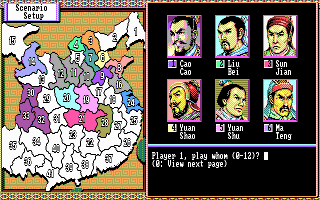It seems appropriate to start this blog by writing a little about myself and what we are doing with the
Medievalist.net website. The quick sketch of myself: I am a librarian living near Toronto, Canada, with my wife and 2 year old son. Since I was in grade school I have had an interest in history, at first Canadian history, but by my undergraduate days at the
University of Toronto I became more interested in the Middle Ages. My first trip to
Kalamazoo ensured that I would be a medievalist. By the time I finished my undergraduate degree I had my first article published, "In Search of Rodrgio Diaz: The Sources of El Cid" for
Studies in Medieval and Renaissance Teaching.
As I started a Master's degree in History at the University of Toronto, my interests focused into examining warfare and violence in the Middle Ages. I got involved with
De Re Militari: The Society for Medieval Military History, an academic association representing medieval military history scholars. Many thanks should go to Kelly DeVries, Clifford J. Rogers, Bert Hall and many other members for their support and guidance with my academic career. Since 2001 I have been serving as the website editor for De Re Militari's website, a very enjoyable experience.

I have studied a wide range of topics in the area of medieval military history, giving papers on the Role of Anglo-Norman Kings in the Treatment of Prisoners of War, Warfare in Thirteenth Century Iceland, and The City of London's role in English wars during the Fourteenth Century. You can read an article I wrote about that last topic in
The Hundred Years War: A Wider Focus, edited by L.J. Andrew Villalon and Donald J. Kagay.
My interest in London's military history also led me to working more on other topics in London, in particular the late 13th and 14th centuries, where we have a rich set of records from the city's local government. I have given papers on several different topics, including violent crime, frauds and con-artists, churchwarden accounts and the development of a water supply system in the medieval city.
After completing my MA in History, and I considered going into a PhD program, but ultimately I decided not to go through with it for two reasons: first, the number of positions for professors of medieval studies was (and still is) not great, so getting a job after 5 more years of studying looked bleak; and secondly, my ability to learn new languages was (and still is) terrible. I don't think my Latin will ever be good enough to pass a university-level test. With this in mind, I decided to go into Library Science. For a few years I had been working at the main library at UofT, which I really enjoyed, and I felt this would be a way for me to keep my foot in the medieval door. I went on and in 2003 completed a Master's degree in Library and Information Studies, again at the University of Toronto.
Since then I have worked at a few different libraries, academic and public, and for the last three years I have been the librarian at
Oxford College, a small private career college that focuses on medical programs like dental hygiene. Throughout this time I have also been working on the
De Re Militari site by adding new content to it and expanding its resources. Soon after I started the website, I decided it would be best to begin adding material such as primary sources and articles to it, so that our members, many of whom teach in universities, can offer some of these items to their classes. I found that authors and publishers were very helpful and gave me permission to republish their material. From 2001 to 2005 I was able to add hundreds of pages to the site (I lost count a long time ago), including articles that were written within the last few years. Most of our material cannot be found on other websites, and it covers a wide range of topics related to medieval military history. The site also added a book review section, under direction of Steven Walton (I have to send him those reviews!). The website has received a lot of positive reviews, and although I still occasionally add some new material to it, I consider it to be largely finished, as there is enough material on it to keep a scholar reading for years.
Over the last few years, I have been interested in taking the concept I did on the De Re Militari website and expanding it to cover other fields in medieval studies. Looking around the net, I can see there are many great websites and blogs that deal with the Middle Ages, but they tend to focus on a particular subject like the Vikings or medieval architecture. I want to create a website where anyone who studies or just enjoys the Middle Ages can begin their web surfing. I have owned the
Medievalists.net domain name for about a year and a half, and there already is some material on it, but we expect it to grow quite a lot over the next few months and years. I have brought in my long-time friend and fellow medievalist Sandra Alvarez to be my partner in a a company we call
CreateHistory.ca. Medievalists.net will be our main website, but we are also going to develop websites in other fields of history.
My role in this blog will be to talk about issues and news that have come up in the medievalist community, to provide updates on the website's progress, and to do some special features here. One of these features is to review a medieval historical source, such as a chronicle, poem, or other document. It will be a kind of overview of this work, what you can learn from it, why is it so good to read, as well as some practical information such as how you can get a translated edition of it.
Thanks for reading this introduction and I hope you continue to enjoy our site.



